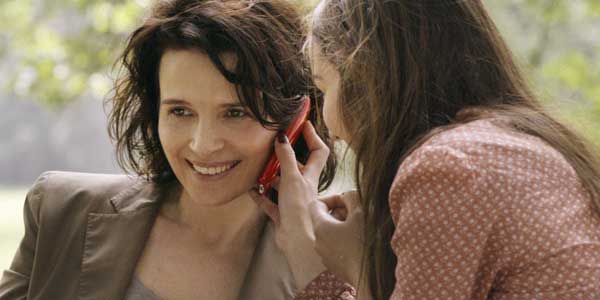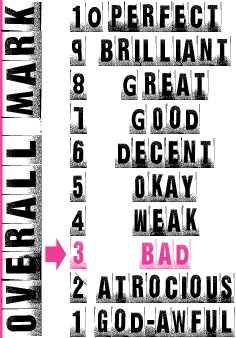
Director: Malgorzata Szumowska
Running Time: 95 mins
Certificate: 18
Release Date: August 20th 2012

Despite the fact Elles’ director is Polish, this is the French-est of films – with an interest in bourgeois life, prostitutes, sex, nudity and a slightly pretentious tone, despite the fact it doesn’t really have anything that smart to say. And that’s about as French film-y as you can get.
Juliette Binoche is Anne, a middle-class wife, mother and journalist, whose latest assignment takes her into the world of students who pay for their education through prostitution. She interviews two of the women and is surprised that they don’t paint the picture of desperation and degradation she expected. The further she delves into their lives, the more it affects her own, as she gives up being teetotal and begins to rebel against the staid patriarchal aspects of her homelife.
In some respects Elles in an interesting film, but mostly it’s rather underwhelming. It has the tone of a movie that thinks it’s uncovering deep truths about modern life – complete with some rather tedious and heavy-handed symbolism – when it’s really pretty much a undergraduate essay in feminism from about 1972 (seriously, this is pitched at the level of someone who feels they’ve had their eyes opened by a couple classes in women’s studies, before they really know anything about the subject). Despite occasional acceptance that the prostitutes can be treated badly by their clientele of ‘bored husbands’, it mainly present them as women in charge of their own destiny, freed from the shackles of the demands of an oppressive male-dominated society, in a kind of battle against the societal expectations placed on them by men.
At times it appears the film is eventually going to reveal Anne’s seeming glorification of the prostitutes’ life is going to be revealed to be more about her fantasy of arousal than reality, but it never really does. Instead it continuously sticks it to a bourgeois existence Anne seems to presented as the victim of, despite there being little evidence she’s trying to do anything to change it (and which doesn’t actually seem that bad). It’s difficult not to conclude that the film’s viewpoint on womanhood lack maturity and the complexity of real life.
It’s also odd that while the film is about women and has a female director, it still seems to be more interested in the male gaze than the female, particularly in regard to sex – indeed each possibly fantasised sexual encounter seems to be about what a man can give a woman. Despite protestations that men are bastards who think all women are whores, it inadvertently seems to suggest women do indeed need men to be fulfilled.
Juliette Binoche does as much as she can with a character who often seems little more than a cipher for a didactic and ultimately confused message, but she can’t cover over the cracks in the muddily scripted and tedious film.
Overall Verdict: Serious looks at the position of women in the modern world are relatively rare, but it needs a movie that’s actually smart and not just as self-satisfied as Elles is.
Reviewer: Tim Isaac





Leave a Reply (if comment does not appear immediately, it may have been held for moderation)